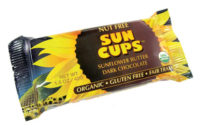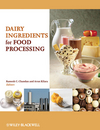Natural and Organic in the Marketplace










The leading segment among organic foods has been the fruit and vegetable category, a nearly $10.6 billion segment accounting for 39.7% of the market share of organic food products. Furthermore, it shows no signs of slowing, as the segment enjoyed the highest year-on-year growth for any organic food category in 2010: 11.8%. Organic dairy remained the second-largest organic food category, enjoying 9% growth and reaching $3.9 billion—nearly 6% of the total U.S. market for dairy products. Organic dairy and meats had seen their growth slip in recent years, owing to such factors as price decreases in conventional milk and the wide price gaps between conventional and organic in meats and dairy, but the segments and the category as a whole continue to enjoy year-on-year sales increases.
In 2009, just over half of these foods were sold through the mass market channel (i.e., mainstream grocers, club stores and retailers), according to OTA’s “2010 Organic Trends Survey,” while natural retailers amassed 38% of the total sales of organic foods, less than in years past and well shy of the 47% share spent in natural retailers as recently as 2005. The OTA attributes this to “many consumers assum(ing)--although not necessarily correctly--that organic products are cheaper in mass market.”
As evidenced at the recent Natural Products Expo West (NPEW) 2011, the natural and organic trends indicate no signs of slowing. In fact, organizers noted the show had its biggest exhibitor turnout in its 30-year history. A plethora of products touted their natural and/or organic benefits, with antioxidant-rich Superfoods continuing to be an area of distinct interest, as acai, baobab, chia seeds, goji berry and sea buckthorn all made their way into various new foods and beverages on display. Beverages, in fact, enjoyed a particular focus, notably beverages with benefits. Activate Drinks, for instance, debuted three new flavors in its Better For You range: Lulo Pear, Blueberry Pomegranate and Raspberry Citrus, each promising vitamins and electrolytes.
Assure Food and Beverage Co. likewise embraced Superfruits with its line of all-natural, low-calorie functional beverages, said to be infused with natural vitamins sourced from fruits and vegetables. The line included Goji Lemonade, Peach Mango, Raspberry Acai and Pomegranate Blueberry.
Consumers’ Digest
Sea Buckthorn Berry and Seed Oils harvested in the Tibetan Plateau were on-hand from SeabuckWonders. The USDA-certified organic products found in the supplement aisles were naturally fortified with more than 190 bioactive nutrients and minerals, including omega-7, which a company representative noted is a “special nutrient that may protect, replenish, moisten and restore the skin and mucus membranes that line the digestive and urogenital tracts.”
Digestive benefits proved the selling point for a wide variety of product introductions. Lifeway introduced ProBugs Organic Whole Milk Kefir, a drinkable dairy product with probiotics and promising to promote overall healthy digestion. Available in such flavors as Sublime Slime Lime, the gluten-free, “yogurt-like” smoothie includes, among its ingredients milk (organic), organic cane juice, organic inulin and vitamins A and D3.
However, yogurt was not just for children—or even humans. Yoghund frozen yogurt treats provided dogs with a treat made from real yogurt and featuring probiotics for the pup’s digestive health. Nature’s Milk likewise focused on the canine consumer with its goat milk products, among them a protein-rich, bite-sized bone.
For the human audience looking for protein, Clickco LLC thought it beneficial to incorporate it into a coffee-flavored drink mix. Click was described as “the world’s first espresso protein drink mix.” Varieties included Mocha and Vanilla Latte, and the natural product promised 15g of protein (17% of the recommended daily value) and 23 vitamins and minerals, including vitamins A (20%), C (30%), D (20%), E (20%), K (20%) and B12 (20%), calcium and magnesium, to name just a few, all augmented by a double shot of espresso (150mg of caffeine per serving).
While the stimulating effects of caffeine may be in demand from a great number of consumers, there has been a spate of natural beverages purporting to promote calm, restful relaxation--something of a direct backlash against the proliferation of energy drinks, it seems. One example, Chillout Natural Calming Drink from Ex Drinks LLC, incorporated such ingredients as chamomile, valerian (an herb “used since Roman times and known for its ability to maintain a feeling of calmness”), lemon balm (for a soothing aroma), vitamins C and B (3, 6, 7 and 12), and a natural fruit sweetener listed as “Fruit Up” on the label. The sweetener, the label claims, is “a natural fruit sweetener extracted entirely from fruits without using chemicals or other additives;” fructose, glucose and sucrose are the second, third and fourth ingredients listed on the ingredient legend, and the company claims the drink has a “low” glycemic index rating of 34.
Living Free
NPEW has also been one of the leading national expos to display the latest in natural/organic, gluten- and allergen-free foods and beverages. Gluten-free remains among the food industry’s fastest-growing trends, as sales of natural gluten-free foods have doubled in the past two years (to $2.64 billion in 2010) and are projected to hit $5.5 billion by 2015, according to a report from Packaged Facts. However, NPEW demonstrated natural, allergen-free products are by no means limited to gluten avoidance.
Sam Mills USA featured Pasta d’oro 100% corn pasta, a gluten-free version of such pasta favorites as penne, rigati, fusilli and fettucine, to name only a few in this extensive line, which is free from gluten, wheat, dairy, eggs, sugar, cholesterol, yeast, soy, sodium and nuts. Sam Mills also had its all-natural line of gluten-free sauces on display, with recipes including Olive Zingara Style, Tomato & Basil, Tuna and Olives, Tomato & Vegetable, and Ricotta Cheese & Vodka.
While Shabtai Gourmet Gluten Free Bakery has gluten-free in its name, its baked goods are also free of casein, peanuts, soy, corn, dairy and lactose. Its dedicated facility has now introduced its take on the iconic Hostess Ho Ho, as well as brownie bites, further evidence that allergen-free has firmly established itself in indulgences.
For bakers, Enjoy Life added Semi-sweet Chocolate Mega Chunks, and an all-natural granola made its way into Enjoy Life’s portfolio, with Double Chocolate Crunch, Cinnamon Crunch, Very Berry Crunch and Cranapple Crunch, each of which may be eaten with rice milk or straight out of the bag. The company, all of whose products are free of wheat, peanuts, eggs, fish, dairy, tree nuts, soy, shellfish, casein, potatoes, sesame and sulfites, also introduced reformulated versions of its soft-baked cookies (in Snickerdoodle, Double Chocolate Brownie, Lively Lemon and Happy Apple varieties, to name only a few).
Mixing two of the hotter trends of recent years, Tisano introduced Chocolate Tea, boasting “the sweet aroma and rich taste of chocolate without the fat or calories.” In fact, the company noted the product is naturally fat- and calorie-free. Positioned as a healthy alternative to coffee and tea, this herbal tea is claimed to feature the benefits of dark chocolate without the guilt. Tisano noted the product contains over 300 compounds, including tannins, catechins, polyphenols and other antioxidant agents, plus theobromine to “provide a mild, long-lasting boost with a mood-improving effect.”
Organic Growth/Natural Reluctance
One company well-known for its organic calming teas is venturing into new territory, as Yogi has introduced All Natural Granola Crisps to the natural snacks segment, an area which also saw Annie’s Homegrown expand its horizons. The company, probably best known for its natural macaroni and cheese products, has added Cheddar Bunnies, promising to be 80% organic.
While organic consumers appear to trust the certification efforts of organic manufacturers, recent research suggests consumers appear reluctant to trust products identifying themselves as “natural.” In fact, according to a MamboTrack survey by Mambo Sprouts Marketing, just over one in three (34%) consumers noted they were either “not very” or “not at all” confident in current natural labeling. The MamboTrack effort surveyed the organic buying habits of 1,000 natural product consumers in December 2010.
The Mambo Sprouts survey suggests these consumers might be more willing to purchase the products, if there were a standard. Some 65% were “very interested in a uniform standard to certify natural products--including ingredients and processes—that are labeled as natural.” Another 25% noted they were “somewhat interested.”
Natural certification by an independent, non-profit group was the option most preferred among natural and organic consumers, 33% of whom would opt for this route. Some 27% indicated they would prefer a government standard, but of less interest were industry/company-supported standards (23%) or retailer certification initiatives (18%).
Mambo Sprouts respondents voiced strong support for organic products, even as these products may be priced at a premium to their mainstream counterparts. As the survey results indicated, “Store brand/private label organics are now mainstream, with virtually all (96%) consumers buying these products; 57% plan to maintain and four in 10 (39%) will increase spending (on organic foods and beverages) in 2011.” pf
Looking for a reprint of this article?
From high-res PDFs to custom plaques, order your copy today!











